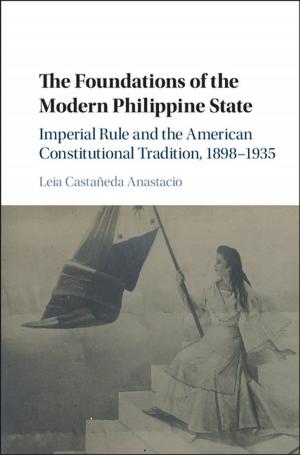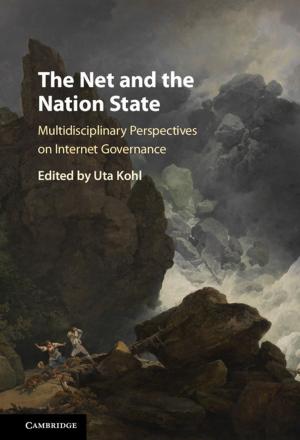Becoming Arab
Creole Histories and Modern Identity in the Malay World
Nonfiction, History, Asian, Southeast Asia, Religion & Spirituality, Philosophy| Author: | Sumit K. Mandal | ISBN: | 9781108186933 |
| Publisher: | Cambridge University Press | Publication: | November 16, 2017 |
| Imprint: | Cambridge University Press | Language: | English |
| Author: | Sumit K. Mandal |
| ISBN: | 9781108186933 |
| Publisher: | Cambridge University Press |
| Publication: | November 16, 2017 |
| Imprint: | Cambridge University Press |
| Language: | English |
Sumit K. Mandal uncovers the hybridity and transregional connections underlying modern Asian identities. By considering Arabs in the Malay world under European rule, Becoming Arab explores how a long history of inter-Asian interaction was altered by nineteenth-century racial categorisation and control. Mandal traces the transformation of Arabs from familiar and multi-faceted creole personages of Malay courts into alienated figures defined by economic and political function. The racialisation constrained but did not eliminate the fluid character of Arabness. Creole Arabs responded to the constraints by initiating transregional links with the Ottoman Empire and establishing modern social organisations, schools, and a press. Contentions emerged between organisations respectively based on Prophetic descent and egalitarianism, advancing empowering but conflicting representations of a modern Arab and Islamic identity. Mandal unsettles finite understandings of race and identity by demonstrating not only the incremental development of a modern identity, but the contested state of its birth.
Sumit K. Mandal uncovers the hybridity and transregional connections underlying modern Asian identities. By considering Arabs in the Malay world under European rule, Becoming Arab explores how a long history of inter-Asian interaction was altered by nineteenth-century racial categorisation and control. Mandal traces the transformation of Arabs from familiar and multi-faceted creole personages of Malay courts into alienated figures defined by economic and political function. The racialisation constrained but did not eliminate the fluid character of Arabness. Creole Arabs responded to the constraints by initiating transregional links with the Ottoman Empire and establishing modern social organisations, schools, and a press. Contentions emerged between organisations respectively based on Prophetic descent and egalitarianism, advancing empowering but conflicting representations of a modern Arab and Islamic identity. Mandal unsettles finite understandings of race and identity by demonstrating not only the incremental development of a modern identity, but the contested state of its birth.















